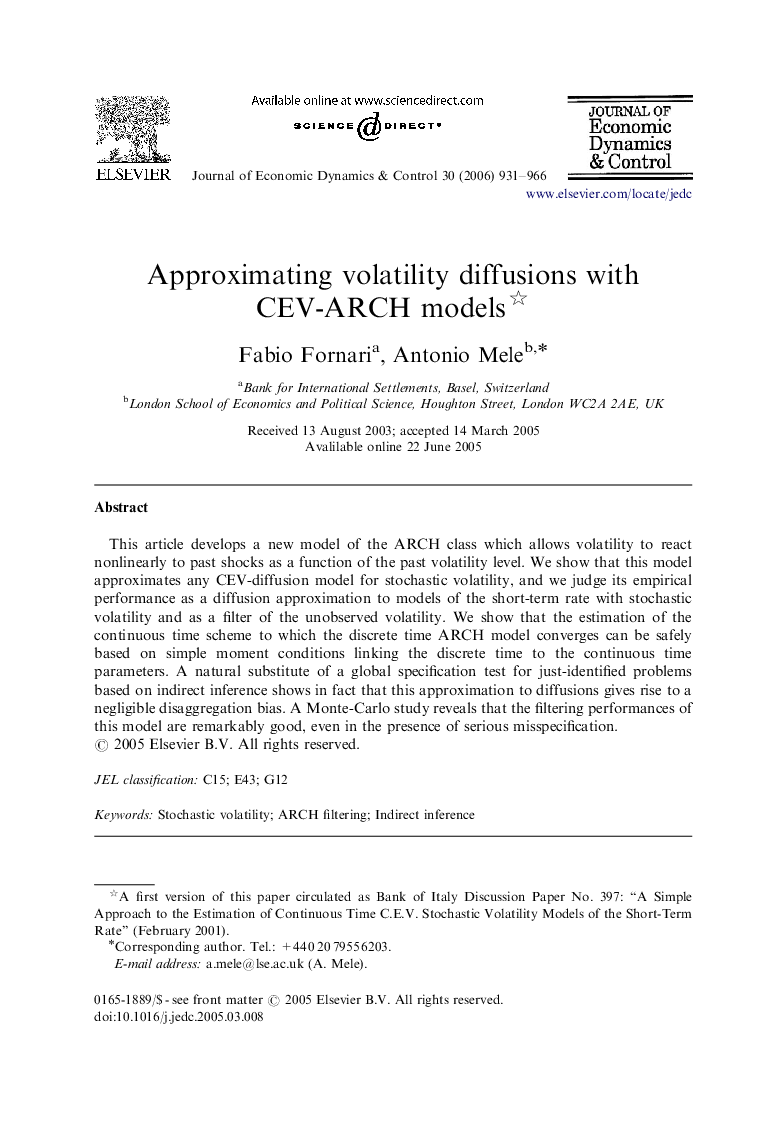| Article ID | Journal | Published Year | Pages | File Type |
|---|---|---|---|---|
| 5099840 | Journal of Economic Dynamics and Control | 2006 | 36 Pages |
Abstract
This article develops a new model of the ARCH class which allows volatility to react nonlinearly to past shocks as a function of the past volatility level. We show that this model approximates any CEV-diffusion model for stochastic volatility, and we judge its empirical performance as a diffusion approximation to models of the short-term rate with stochastic volatility and as a filter of the unobserved volatility. We show that the estimation of the continuous time scheme to which the discrete time ARCH model converges can be safely based on simple moment conditions linking the discrete time to the continuous time parameters. A natural substitute of a global specification test for just-identified problems based on indirect inference shows in fact that this approximation to diffusions gives rise to a negligible disaggregation bias. A Monte-Carlo study reveals that the filtering performances of this model are remarkably good, even in the presence of serious misspecification.
Related Topics
Physical Sciences and Engineering
Mathematics
Control and Optimization
Authors
Fabio Fornari, Antonio Mele,
